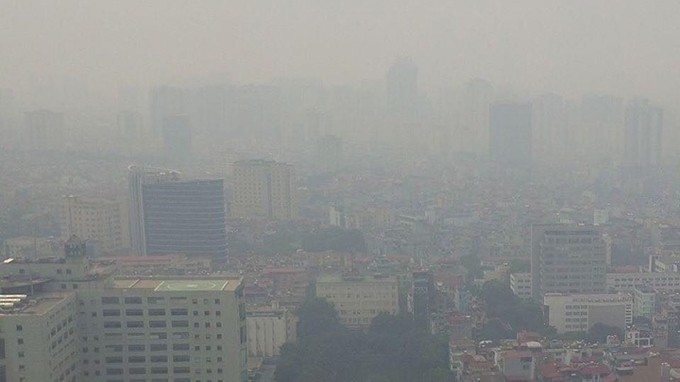
Illustration. (Source: Communist Party of Vietnam electronic newspaper)
Air pollution has become a common global challenge.
Despite recent advances, levels of air pollutants in many European countries are still higher than recommended by the World Health Organization, according to research just published by the European Environment Agency (EEA). world (WHO).
This silent killer is responsible for more than 1,200 premature deaths each year among people under the age of 18 in 32 countries, including 27 member states of the European Union (EU).
The report emphasizes that the sad fact mentioned above reflects the existing risks to people's health. Poor air quality can exacerbate chronic diseases such as asthma, which affects 9% of European children and adolescents, as well as increase the risk of certain chronic diseases in adulthood. .
Besides European countries, many countries around the world are also facing unsafe air quality. The American Lung Association's State of Air 2023 report shows that nearly 120 million Americans live in areas with air pollution. The association warns that poor air quality can lead to adverse health effects, shortening life expectancy.
Meanwhile, Thailand's Ministry of Health said that since the beginning of 2023, about 2.4 million people in Thailand have sought hospital treatment for medical problems related to air pollution such as symptoms. respiratory problems, dermatitis, eye inflammation and sore throat.
According to WHO, air pollution is one of the most serious threats to people's health globally, causing about 7 million deaths each year, nearly equal to the number of deaths due to air pollution. smoking and unhealthy eating. About 200,000 of the deaths were among children under the age of 15.
According to EU High Commissioner for the Environment Virginijus Sinkevicius, long-term exposure to air pollutants, such as industrial fine dust and nitrogen dioxide (NO2) generated from combustion fossil fuels, which can cause diabetes, lung problems and cancer.
The most vulnerable are children, the elderly and people with underlying medical conditions. According to the EEA, after a baby is born, air pollution increases the risk of a number of health problems, including asthma, impaired lung function, respiratory infections and allergies. response.
Meanwhile, the United Nations Children's Fund (UNICEF) said that about 30% of deaths from pneumonia are due to air pollution. Outdoor air pollution is a risk to children, but indoor air pollution from using dirty fuels for cooking and heating poses an even greater threat.
The above alarming figures have outlined a gray picture of the state of the world's air. In fact, over the past time, many countries and international organizations have made constant efforts to prevent this danger.
In 2021, WHO tightened air quality standards, cutting the acceptable amount of fine dust from 10mcg/m3 to 5mcg/m3. Meanwhile, the EU has also set a target to improve air quality by 2030, with the aim of reducing the number of premature deaths due to air pollution by at least 55% compared to 2005 levels.
Scientists say that low air quality is not a challenge of a country or a region but of the entire international community. Therefore, the fight against this common enemy requires the solidarity and cooperation of countries to jointly prevent forest fires and the use of fossil fuels, which are considered the leading causes of air pollution. .